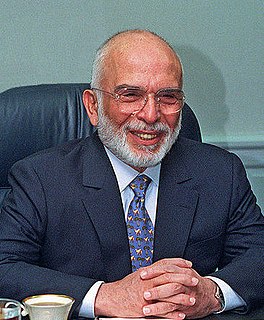A Quote by Rajneesh
It is beautiful that there are three hundred religions in the world; more are needed. ... Each person should have his own religion - there should be as many religions as there are people!
Related Quotes
All religions are not the same. All religions do not point to God. All religions do not say that all religions are the same. At the heart of every religion is an uncompromising commitment to a particular way of defining who God is or is not and accordingly, of defining life's purpose.
Anyone who claims that all religions are the same betrays not only an ignorance of all religions but also a caricatured view of even the best-known ones. Every religion at its core is exclusive.
The way of presentation is different according to each religion. In theistic religions like Buddhism, Buddhist values are incorporated. In nontheistic religions, like some types of ancient Indian thought, the law of karma applies. If you do something good, you get a good result. Now, what we need is a way to educate nonbelievers. These nonbelievers may be critical of all religions, but they should be decent at heart.
A truly religious man should think that other religions also have many paths leading to the truth.
One should always maintain an attitude of respect towards other religions. Dispute not, as you rest firmly on your own faith and opinion, allow others also equal liberty to stand by their own faith and opinion.
I came to the conclusion long ago that all religions were true and that also that all had some error in them, and while I hold by my own religion, I should hold other religions as dear as Hinduism. So we can only pray, if we were Hindus, not that a Christian should become a Hindu; but our innermost prayer should be that a Hindu should become a better Hindu, a Muslim a better Muslim, and a Christian a better Christian.
It should not be strange that the values cherished by all the three major religions are the same, since they originate from a common source. For example, Islam, the predominant religion in the Middle East, accepts as an integral part of its religious teachings both the Old and the New Testaments. If this commonality of moral traditions among the world's major religions does not say something about the universality of religion, it does say something about the universality of mankind.
RELIGION is one's opinion and belief in some ethical truth. To be a Christian is to have the religion of Christ, and so to be a believer of Mohammed is to be a Mohammedan but there are so many religions that every man seems to be a religion unto himself. No two persons think alike, even if they outwardly profess the same faith, so we have as many religions in Christianity as we have believers.
I have always marveled that so many religions exact such revenge against dissenters. It only weakens the appeal of their faith and contradicts any claims they might have made that 'all religions are basically the same.' If all religions were indeed the same, why not let someone be 'converted' to another religion?
Historically, religion has given people another world to live in, a world more adaptive to the human spirit. As a student of world religions, I see religion as the winnower of the wisdom of the human race. Of course, not everything about these religions is wise. Their social patterns, for example - master-slave, caste, and gender relations - have been adopted from the mores of their time. But in their view of the nature of reality, there is nothing in either modernity or postmodernity that rivals them.
The word religion literally means, in Latin, to link or bind together; and despite the vast variation in the world's religions, Wilson shows that religions always serve to coordinate and orient people's behavior toward each other and toward the group as a whole, sometimes for the purpose of competing with other groups.
How can you have the religion of the sovereign be the religion of the state if the sovereign belongs to many religions? And it's at that point, I think, historically, that you start to see people saying maybe the state should not associate itself with any religion. Maybe there shouldn't be any official religion.
An important advance in the life of a people is the transformation of the religion of fear into the moral religion. But one must avoid the prejudice that regards the religions of primitive peoples as pure fear religions and those of the civilized races as pure moral religions. All are mixed forms, though the moral element predominates in the higher levels of social life. Common to all these types is the anthropomorphic character of the idea of God.
We should all oppose - as Darwin did - views manifestly in conflict with the evidence, such as creationism... But we shouldn't set up this debate as 'religion v science'; instead we should strive for peaceful coexistence with at least the less dogmatic strands of mainstream religions, which number many excellent scientists among their adherents.




































